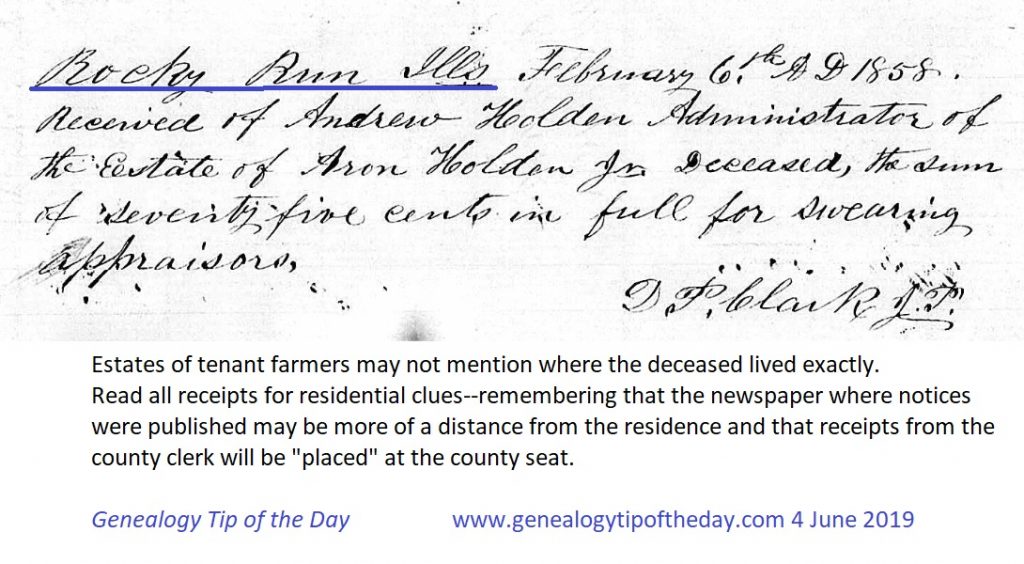
Probate records for tenant farmers may not provide any direct statements as to where the deceased lived–just that they had property within the county limits. Make certain to read the entire file completely, paying particular attention to anything that may list an address or location. Receipts often have a date and a place written on them. Doctors, estate appraisers, and other small businessmen who may have interacted with your ancestor likely lived close. Appraisers often live in near proximity to the deceased–giving them a better idea of what the deceased owned and what it was worth.
Receipts for publication of probate notices may be to newspapers in the county seat or the nearest town with a newspaper.
Receipts for payment of court expenses will be “placed” at the county seat because that is where the court offices are located.
In the illustration from the 1850s, the Justice of the Peace in Rocky Run, Illinois (likely a reference to Rocky Run Township in Hancock County), received seventy-five cents for swearing the appraisers. Chances are the deceased farmed rental property in that area. The probate does not say he rented property, but there was no real estate inventoried in his estate and he had a significant number of farming items. That makes his likely farming occupation as a rental farmer likely.







No responses yet